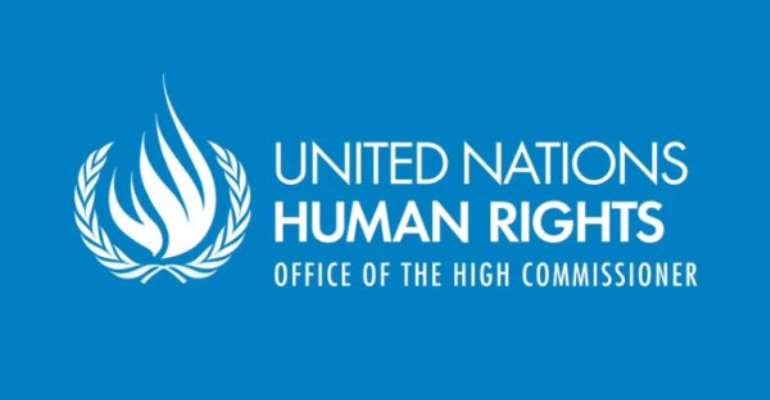Pillay condemns “abhorrent” attacks on people with albinism in Tanzania

GENEVA, Switzerland, March 5, 2013/African Press Organization (APO)/ -- The UN High Commissioner for Human Rights, Navi Pillay, said Tuesday she was appalled by reports of an upsurge in attacks against people with albinism in Tanzania, and called on the authorities there to take stronger measures to halt the crimes and tackle the underlying discrimination.
“I strongly condemn these vicious killings and attacks, which were committed in particularly horrifying circumstances, and which have involved dismembering people, including children, while they are still alive,” Pillay said.
Four new attacks targeting people with albinism, three of whom were children, were documented in Tanzania in a period of just 16 days:
• On 31 January, Lugolola Bunzari, a 7-year-old boy with albinism was brutally murdered in Kanunge village, Tabora region. His attackers slashed his forehead, right arm and left shoulder, and chopped off his left arm just above the elbow. The boy's grandfather, aged 95, was also killed in the attack as he tried to protect his grandson.
• On 5 February, a 7-month-old baby, Makunga Baraka, narrowly escaped death after armed men attacked his home in the Simiyu region. Villagers chased the attackers away and surrounded the house to protect him. The baby and his mother were taken to the police station the following morning and given temporary sanctuary.
• On 11 February, at around 2:00 a.m., Maria Chambanenge, a 39-year-old woman with albinism was attacked by five armed men, allegedly including her husband, in Mkowe village, Rukwa region. They hacked off her left arm while she was sleeping with two of her four children. The five suspects were subsequently arrested and the victim's arm recovered. Their trial is reported to be under way.
• On 15 February, Mwigulu Matonange, a 10-year-old boy with albinism was attacked on his way home from school, and his left arm chopped off above the elbow by two unidentified men in Msia village, Rukwa region. Three men have been arrested in connection with the attack. Following the attack, the boy is reported to have asked his father to find him “a school where the bad men cannot find me and chop off my other arm.”
The killing and mutilation of people with albinism is often linked to witchcraft. Some practitioners allegedly also believe that the witchcraft is more powerful if the victim screams during the amputation, which explains why the body parts are often cut from live victims.
In addition to the Maria Chambanenge case where trials are already underway, Tanzanian police have reportedly opened investigations in two of the other three cases that occurred since late January.
However, in general, successful prosecutions are extremely rare: out of the 72 murders of people with albinism documented in Tanzania since 2000, only five cases are known to have resulted in successful prosecutions.
“These crimes are abhorrent,” Pillay said. “People with albinism have the right to start living, like anyone else, without fear of being killed or dismembered. The Tanzanian authorities have the primary responsibility to protect people with albinism, and to fight against impunity, which is a key component for prevention and deterrence of the crimes targeting this exceptionally vulnerable community,” she said. “I urge the Tanzanian authorities to strengthen their legal response to such crimes and increase their efforts to bring perpetrators of attacks and killings to justice.”
Noting that witchcraft beliefs and practices are entrenched in some segments of Tanzanian society, Pillay called on the authorities to address the issue through a multi-pronged approach.
“As well as physically protecting people with albinism, the Government needs to take a much stronger and more pro-active approach to education and awareness-raising campaigns to combat the stigma attached to albinism,” she said. She also encouraged the authorities to guarantee the victims' right to redress, and to provide them with medical and psychosocial treatment, as well as legal support.
“I am deeply alarmed by the general discrimination and social exclusion many people with albinism suffer, as a result of their skin colour, not just in Tanzania but in other countries as well,” Pillay said, noting that families of children with albinism frequently neglect their education.
Those who do attend school often suffer from severe bullying, and many are forced to drop out of school and live in poverty. This marginalization can be a contributing factor to a shorter life expectancy than that of other members of the same society: many people with albinism cannot, for example, afford simple remedies, such as sun cream, that would protect them from the increased risk of skin cancer caused by the lack of pigmentation in their skin.
“People with albinism are a group with special health needs,” Pillay said. “They are, however, perfectly capable of looking after themselves, if their societies do not marginalize them. Much more attention needs to be devoted to their predicament in Tanzania, and elsewhere.”
